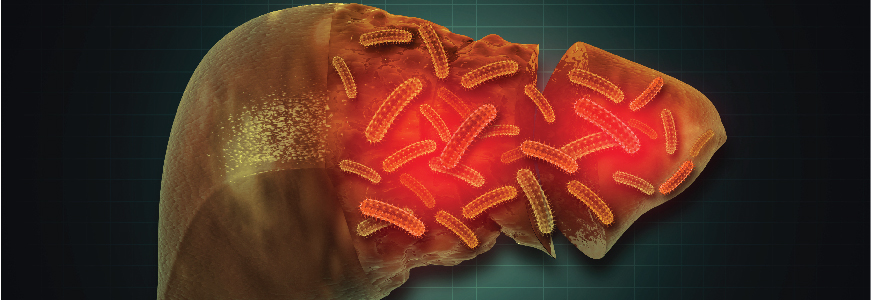Tim Pittman
Articles by Tim Pittman

Cardiology & Heart Surgery
Duke cardiologists performed a novel transcatheter stent procedure for an 80-year-old patient as an alternative to a complex surgery to treat a previously undiagnosed congenital heart condition known as superior sinus venosus atrial septal defect (SVASD).
Duke Adult Congenital Heart Center Director and Interventional Cardiologist Richard A. Krasuski, MD, performed the catheter procedure in collaboration with Gregory A. Fleming, MD, MSCI, a pediatric interventional cardiologist, for the first time at Duke in April 2021. It was the third procedure of its kind in the U.S. The technique was pioneered in Europe by pediatric cardiologist, Sir Shakeel A. Qureshi, MBChB. Dr. Qureshi is based at Evelina Children’s Hospital in London.
Duke Adult Congenital Heart Center Director and Interventional Cardiologist Richard A. Krasuski, MD, performed the catheter procedure in collaboration with Gregory A. Fleming, MD, MSCI, a pediatric interventional cardiologist, for the first time at Duke in April 2021. It was the third procedure of its kind in the U.S. The technique was pioneered in Europe by pediatric cardiologist, Sir Shakeel A. Qureshi, MBChB. Dr. Qureshi is based at Evelina Children’s Hospital in London.

Transplant
The Duke Transplant Center completed its 10,000th solid-organ transplant in June, crossing a threshold reached by fewer than 20 centers in the United States, according to United Network for Organ Sharing (UNOS) data. Duke leads all Carolinas hospitals in transplant volume and ranks among the leaders in the Southeastern US.
This achievement represents a significant milestone for a center that has leveraged decades of clinical innovation and research to become a leading referral center for patients facing challenging diagnoses.
“Duke is one of the best places in the nation to receive a transplant, one of the best places to be trained in this discipline, and one of the best to continue to practice as a specialist in transplant,” says Stuart J. Knechtle, MD, executive director of the Duke Transplant Center.
Experiencing dramatic growth in volume in recent years, Duke offers among the shortest median wait times in the nation for lung, heart, and liver transplants. The lung transplant program ranks first in total transplant volume and second in 2021, according to the Organ Procurement and Transplantation Network (OPTN), and the heart transplant program is ranked sixth in the U.S. in total transplant volume, and third in 2021.
This achievement represents a significant milestone for a center that has leveraged decades of clinical innovation and research to become a leading referral center for patients facing challenging diagnoses.
“Duke is one of the best places in the nation to receive a transplant, one of the best places to be trained in this discipline, and one of the best to continue to practice as a specialist in transplant,” says Stuart J. Knechtle, MD, executive director of the Duke Transplant Center.
Experiencing dramatic growth in volume in recent years, Duke offers among the shortest median wait times in the nation for lung, heart, and liver transplants. The lung transplant program ranks first in total transplant volume and second in 2021, according to the Organ Procurement and Transplantation Network (OPTN), and the heart transplant program is ranked sixth in the U.S. in total transplant volume, and third in 2021.

Interdisciplinary
Leaders of the Duke Child and Adolescent Gender Care Clinic, which celebrated its seventh anniversary in July, have identified a large number of patients reporting anxiety caused by COVID-related isolation.
Deanna W. Adkins, MD, a pediatric endocrinologist, says school closings made it difficult for young patients and their families to find gender-focused clinical care. “We definitely see a COVID-related backlog and it’s important that helpful, supportive care is available and that it is effective for these individuals and their families,” Adkins says.
Deanna W. Adkins, MD, a pediatric endocrinologist, says school closings made it difficult for young patients and their families to find gender-focused clinical care. “We definitely see a COVID-related backlog and it’s important that helpful, supportive care is available and that it is effective for these individuals and their families,” Adkins says.

Cardiology & Heart Surgery
Entering his second year as editor-in-chief of the Journal of Cardiac Failure (JCF), Duke advanced heart failure specialist Robert J. Mentz, MD, has worked to enhance the international journal with a commitment to diversity, equity, and inclusion while creating a more transparent, welcoming environment for contributors and readers.

Transplant
The Duke adult kidney transplant program’s one-year conditional survival rate rose to 99.69%--exceeding the national average by two percentage points, according to data from the Scientific Registry of Transplant Recipients (SRTR).
The 2021 data highlights the program’s rank in the top one percent for both outcomes and quality, says Matthew J. Ellis, MD, medical director of the adult transplant program.
“These rankings reflect well on the U.S. transplant community in general,” Ellis says. “An overall conditional survival rate of about 97% indicates broad success. Exceeding 99% is an achievement we are very proud of.”
The 2021 data highlights the program’s rank in the top one percent for both outcomes and quality, says Matthew J. Ellis, MD, medical director of the adult transplant program.
“These rankings reflect well on the U.S. transplant community in general,” Ellis says. “An overall conditional survival rate of about 97% indicates broad success. Exceeding 99% is an achievement we are very proud of.”

Transplant
The Duke Pediatric Liver Transplant program has built a track record of exceptional outcomes while maintaining a commitment to offer transplants soon after birth when medically appropriate, providing treatment earlier than other Carolinas centers. Experienced surgeons offer variant grafts and medical teams collaborate to diagnose and treat complex and life-threatening liver disease as well as tumors in infants. Helping small infants with life-threatening disease receive an early transplant is a priority of the program.





